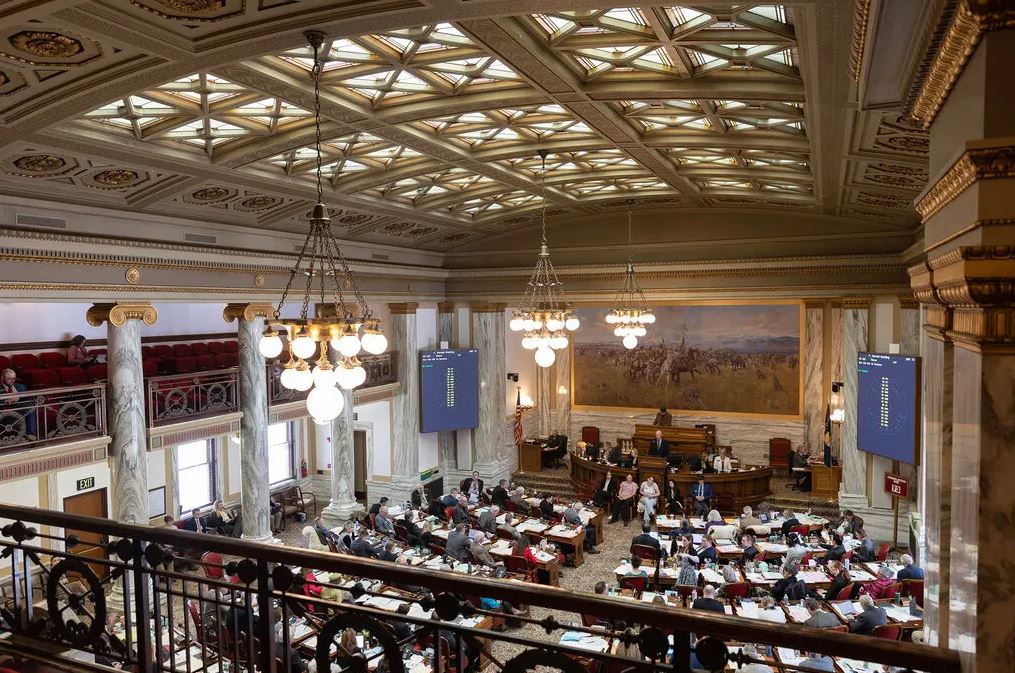On Monday, TikTok took legal action against the state of Montana in an attempt to prevent that state from becoming the first in the US to ban the popular video app.
The corporation sued the state of Montana in the United States District Court for the District of Montana, claiming that the state’s statutes violated the First Amendment and other provisions of the United States Constitution that place limits on the powers of the states. This prohibition “unconstitutionally shutting down the forum for speech for all speakers on the app,” the business said in its complaint.
A few days after Montana governor Greg Gianforte signed the prohibition into law, TikTok filed suit to prevent the legislation’s penalties from being enforced.
TikTok, which is owned by the Chinese internet business ByteDance, has become a test case in the state legislation to see whether it is feasible to restrict its usage due to national security concerns. Concerns have been voiced concerning the feasibility of enforcing the prohibition inside Montana prior to its scheduled implementation on January 1.
The lawsuit is an additional legal obstacle. On Wednesday, the day Mr. Gianforte signed Montana’s measure, a group of TikTok users filed a second action opposing it, claiming that it violated their First Amendment rights and beyond the state’s legal jurisdiction. The American Civil Liberties Union and the Knight First Amendment Institute at Columbia University are just two of the organisations that have spoken out against the bill.
With over 150 million users in the United States, TikTok has been stuck in a political limbo through two administrations as it tries to allay fears about its Chinese ownership. The company’s intention to operate in the United States has been pending approval from the Biden administration, but it has already been met with restrictions on government devices in more than two dozen states, as well as by colleges and the military.
Mr. Knudsen, a Republican, wrote the Montana prohibition that was submitted this year by a Republican state legislator. Members of Montana’s legislature said that imposing this restriction would protect residents’ privacy from the Chinese government. After a Chinese surveillance balloon made headlines for floating above the state, discussion about the restriction got underway.
Because of this new regulation, TikTok will be unable to provide its app in the state. It will also be unavailable for download in the state from app stores run by companies like Apple and Google. Failure to comply might result in daily penalties of $10,000 for TikTok, Apple, and Google.
TikTok argued in court that the restriction exceeded Montana’s power since it would affect interstate trade, which falls under federal jurisdiction. The complaint argued that the restriction was unconstitutional because it singled out a certain group of people for punishment.
Even if the courts don’t strike down the prohibition, its opponents argue that it will be tough to implement. Montanans in border towns may be able to access the internet through mobile towers in neighbouring states, while TikTok users in the state might still use the app provided they masked their location using virtual private network software. TechNet, an Apple and Google lobbying organisation, has said that it is difficult for app stores to impose download restrictions on a single state.
TikTok, according to Mr. Knudsen’s office last week, may utilise the same technology used by the online gambling sector to prevent users from accessing their app from locations where it is unlawful to do so.
The ban’s legal challenge might go on for months. Since the prohibition wouldn’t go into force until next year, there is no pressing necessity for the courts to prevent it from doing so at this time.
In the United States, TikTok and its backers were able to use the legal system to overturn a prior prohibition. In 2020, after President Donald J. Trump issued an executive order using his emergency economic powers to prevent TikTok from functioning in the United States, the company filed a lawsuit against the federal government. After being challenged by a group of creators, the ban was first upheld by a court who agreed with the firm.
In 2020, India will join the list of nations that have outlawed TikTok. In recent months, the app has been blocked on government-issued smartphones in Britain, Canada, and France.

